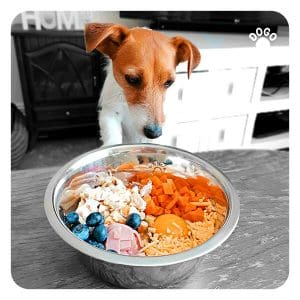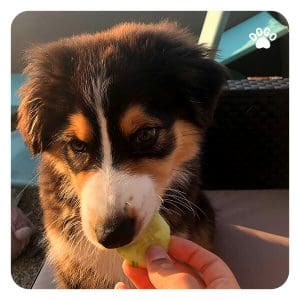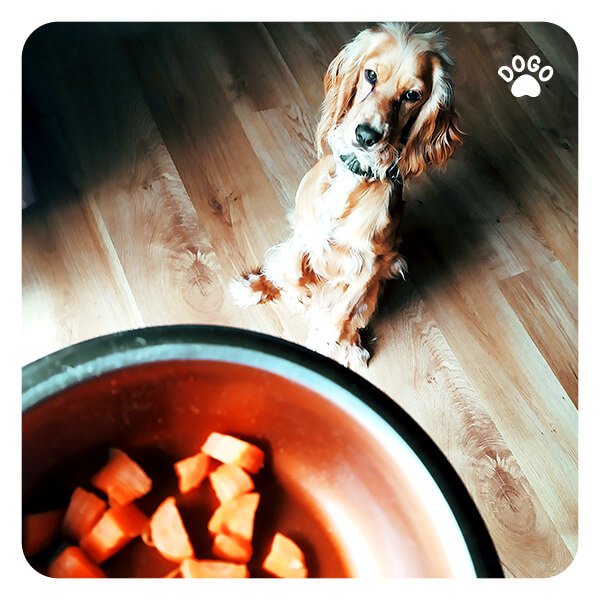 A picky pup can be a real cause for concern as a pawrent. You may try to give your loveable fur baby all the best when it comes to nutrition, but what if all he does is give it a sniff, maybe a tentative lick, but goes after your food instead? We are going to look at why your dog doesn’t want to eat and identify the reasons why they might be a picky eater. Don’t worry too much just yet, we have your back!
A picky pup can be a real cause for concern as a pawrent. You may try to give your loveable fur baby all the best when it comes to nutrition, but what if all he does is give it a sniff, maybe a tentative lick, but goes after your food instead? We are going to look at why your dog doesn’t want to eat and identify the reasons why they might be a picky eater. Don’t worry too much just yet, we have your back!
Reasons Why Your Dog Doesn’t Want to Eat
There are many reasons why your dog doesn’t want to eat and it can range from basic spoiled behavior to some underlying illness. Don’t panic, because most of the time, the dog being a picky eater is nothing serious.
1. They Are Bored of Their Food
If you feed your fur baby too many table scraps or let them enjoy snacks more often than not, then you may have bred this picky eating behavior in your dog. However, it can also happen that your pup is just not a food-oriented dog. Some breeds such as Spitz see food more as sustenance rather than an enjoyment.
Solution:
It is okay if they are not that into it if they have always been this way since a puppy. However, if you think the behavior may stem from “the grass is greener” mindset, then cease with the snacks and scraps.
In the beginning, you may still find your pup holding out on you waiting for their nightly steak, but after a period of time, they will eventually give up, get hungry and eat their food.
2. Anxiety and Emotional Issues
Just like humans are prone to lose their appetite or gorge according to their moods, dogs have this tendency too. When they are missing you, feeling anxious, or if there has been a change in their surroundings, it could affect their appetite.
Solution:
If you sense that emotional stressors are the cause of their loss of appetite or picky eating, try to spend more time with your pup. Play mentally stimulating games or train a new trick from the Dogo app. There are so many commands to choose from that will help you bond with your pup. Overall, give them more attention, it might be all they need to get better and start normally eating again.
Separation anxiety is a common issue among dogs and can lead to a loss of appetite. If your dog is exhibiting signs of separation anxiety, such as destructive behavior or excessive barking, it’s essential to address the root cause of the issue. This might involve gradually increasing the amount of time you spend away from your dog, using calming aids such as pheromone sprays or diffusers, or seeking the help of a professional dog trainer. On the other hand, if your dog is feeling anxious due to changes in their surroundings, such as moving to a new home, it’s important to give them time to adjust to their new environment. You can also try to make their new home more comfortable by providing familiar items, such as their favorite toys or blankets.
3. They May Be Sick
This is every pawrent’s worst nightmare but because it’s possible, it has to be addressed. If your dog is having health problems, whether it is just a cold or a more serious disease, one of the first things a vet will tell you to do, will be to monitor their appetite. If you notice a drastic change from a food-loving hyper dog to a lethargic picky eater, it might indicate that something is wrong.
Solution:
Make sure to monitor your dog’s appetite for more than a day. Sometimes the picky eating is just a temporary symptom – your pup might have had too much food the other day or they might be too tired from using all the energy on playing. If the issue persists for more than a day, either call up your trusted vet or take a trip to the animal hospital.
4. They Just Don’t Like the Food, to Begin with
 If you recently switched your dog’s food, then the lack of interest in the food could just be because your pooch doesn’t like the taste of the new food. Dogs are animals with colorful personalities and some of them can be quite stubborn and headstrong. They will show you what they like or don’t like by simply refusing to try it.
If you recently switched your dog’s food, then the lack of interest in the food could just be because your pooch doesn’t like the taste of the new food. Dogs are animals with colorful personalities and some of them can be quite stubborn and headstrong. They will show you what they like or don’t like by simply refusing to try it.
Solution:
When you find a flavor your dog likes, simply stick with it. You can try sample packs or treats in a different flavor to figure out what other options they can accept. You can also try to switch up their food to something more inviting and pleasing to their palate. Click here for more information on dog foods that are great for picky eaters.
5. It’s Just Not the Time
Dogs are creatures of habit. Yes, they conform to your schedule so if you are an early riser, chances are your dog will be up at the crack of dawn with you. However, this is a double-edged sword. This means you won’t have your schedule disrupted when you have a dog because they mesh with you. But it can also mean straying from your schedule due to unforeseen circumstances and it can trigger picky eating.
Solution:
Sometimes things crop up and you can’t help but feed your fur baby an hour earlier or later than their set mealtime. That’s okay, just whenever possible, go back to the regular routine. If you don’t have one, this is the perfect chance to take the time and hammer one out.
To make the schedule permanent, take the food away if your dog is uninterested. Give them about 10 minutes time, and if they don’t touch it, remove the food bowl. Let them know that it’s in their best interest to eat when food is in front of them or he will have to go hungry until dinnertime.
It is also important to be flexible and adjust your schedule when necessary. If you know that you will not be able to feed your dog at their usual time, try to give them a small snack or meal to hold them over until their next scheduled feeding time. You can also try gradually adjusting their feeding schedule if you need to make a permanent change. Remember to be patient and consistent when making changes to your dog’s routine, as this can help them adjust more easily.
6. They Like It Just So
Again, dogs are habitual creatures. If they are used to eating in a set location, then don’t change it up if there is no reason to. Some pups are very sensitive to change and will become picky eaters because something is different. Don’t change their feeding spot without good reason.
Solution:
Luckily, this one is rather easy to solve. All you need to do is move their food bowl back to their original spot and give them time to get accustomed again.
7. They Already Ate
 Have you ever thought that you might be overfeeding your dog? If they are still full from the last meal, they won’t want to eat a second full bowl. Another reason for picky eating is often seen in households with multiple pets. Your dog may have stolen the cat’s dinner and they are too full to finish their own food.
Have you ever thought that you might be overfeeding your dog? If they are still full from the last meal, they won’t want to eat a second full bowl. Another reason for picky eating is often seen in households with multiple pets. Your dog may have stolen the cat’s dinner and they are too full to finish their own food.
Solution:
First of all, double-check if you feed your dog the correct amount of food every day. Read our guide on how many calories your dog should get per day.
Additionally, if you have more pets, monitor them during mealtime to make sure they eat from their own bowls. Don’t leave any food out and always pick up leftovers after mealtime.
Conclusion
There are multiple reasons why your dog doesn’t want to eat and why they are picky eaters. The good news is that we have listed the most common issues in this article. To identify the cause of your dog’s behavior, make sure to observe your dog carefully. It will help you eliminate each option off the list until you are left with the most accurate answer. However, if you are getting worried about your pup’s health or wellbeing, the best solution is always to consult a specialist. Better safe than sorry!



